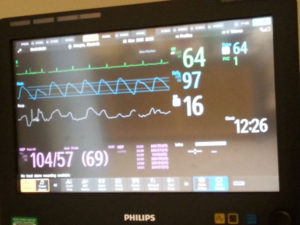
 A few days ago, I underwent surgery to remove a cataract and replace my occluded lens with an implant.
A few days ago, I underwent surgery to remove a cataract and replace my occluded lens with an implant.
I was filled with dread as the day approached! I need not have been, since the procedure itself was relatively quick and simple (for the surgeon, anyway). As it turned out, the prep time took longer than the actual surgery.
Post Surgery Care for Cataract Procedure
What is more of an inconvenience, is the post surgery care. Be prepared “to be busy,” is how my doctor put it. After the surgery is over, the patient is expected to follow a rigorous eye drop administration schedule. In my case, there are 3 medications that need to be administered. One drop every 4 hours, another one is given every 3 hours, and the final one is administered just before bed time.
In addition to the medications, there are rules to follow. There’s no swimming for 2 weeks. No eye makeup for 2 weeks. There’s to be no pressure on the eye itself. No bending, no strain upon the eye from heavy lifting, for example. Before going to bed, I must attach a shield that covers my eye. This will prevent me from rubbing my eye while I sleep, and there’s to be no eye rubbing! I am definitely wanting to rub my eye. I never realized how much I did that until someone told me I can’t! There’s enough itching to make you crazy. I just blink my eye, or open it wide to try to interrupt the itching when it happens.
This will go on for about a month. Once a month has passed, and the doctor has confirmed that my eye has fully healed, I can get back to my usual habits.
Life in High Definition
The morning after my surgery, after my pupil was no longer extremely dilated, I awoke to see the world in a colorful clarity I had forgotten existed. I now get the big deal about Hi-def TV. I had been wondering what all the fuss was about. It’s amazing to see vibrant colors and clear text when I’m reading. That’s even with only one eye fixed. I can’t imagine how it will be with new lenses in both eyes!
If you’re not seeing as clearly as you’d like, see your doctor. If you’re having trouble driving at night, it could be cataracts. Make an appointment to see your eye doctor and prepare to be amazed.
